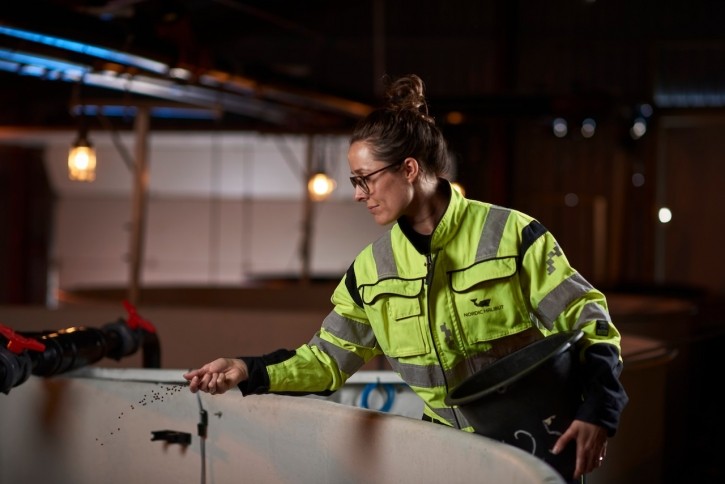Nordic Halibut and Skretting partnership: The focus is on sustainability

Nordic Halibut has worked closely with Skretting for a number of years already, developing precise nutritional products that are specialized for halibut.
The fish farming company says this alliance will ensure the stability and predictability of its feed supply, supporting its growth plan:
“We believe that long-term cooperation is fundamental to achieve sustainable development. Working closely with Skretting will help us optimize the feed so that we can offer a premium quality product with a minimal footprint,” said Nordic Halibut CEO, Edvard Henden.
He highly rates Skretting’s sustainability and sourcing credentials.
“Its ambitions in terms of quality and sustainability reflects ours, and therefore we choose to enter a new three-year partnership that ensures sufficient high-quality feed supply towards our production targets in 2026,” said the CEO.
Nordic Halibut works with the Skretting production facility located at Averøy, near to Nordic Halibut’s core production hub at Nordmøre, and the halibut producer said this fact contributes to minimizing supply risk and reducing the environmental impact of transportation.
Traceable ingredients
Martin Davidsen, Skretting sales manager for Norway, said the feed company focuses on using ingredients with minimal impact. “All the raw materials we use in the Halibut feed are certified and also traceable,” he confirmed.
Skretting provides feed with the precise nutrition required for all the life stages of halibut farming; the fish have a long maturation period. The feed formulations are informed by both the company’s own research as well as external data.
The feed company is also looking to develop its knowledge of halibut dietary requirements by taking blood samples of the fish so that it can get a baseline and adjust nutrition when needed, as well as exploring the utilization of the zooplankton, Calanus finmarchicus, in addition to other new raw materials, in the formulations.








